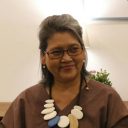The struggle to end violence against women is a long-term agenda that requires a whole-system approach supported by meaningful and sustained resourcing. The journey is a long and winding road on all counts.
In 2011, the Association for Women’s Rights in Development (AWID) conducted a global survey called ‘Where is the Money for Women’s Rights?’ and found that 740 women’s organizations had a collective income of USD 104 million, much less than the $310 million USD budget of Greenpeace International.
Among the 1000 women’s rights organizations surveyed, 52 per cent have never received multi-year funding and 48 per cent have never received funding for core costs. Since then, there has been ample pressure on donors to allocate better resourcing for women’s rights.
Rightly so, considering the UN Secretary General’s conclusion at the 20-year review of the 1995 Beijing Platform for Action that progress in achieving gender equality was ‘unacceptably slow, with stagnation and even regression in some contexts’.
Alongside the global scene, local initiatives to address the resourcing gaps for women’s rights also abound. They emerge in response to needs and opportunities arising from distinct historical – and political – moments that occur in diverse contexts, locally, nationally and regionally.
In Indonesia, responding to a sudden growth of local women’s crisis centers around the archipelago, a national women’s fund, Pundi Perempuan, was set up in 2001.
This surge reflected a change in direction among Indonesia’s women’s movement triggered by deep shock over mass rapes during a week of riots that led to the resignation of the country’s dictator, in 1998.
The fund was set up by Indonesia’s National Commission on Violence Against Women, which was established only three years earlier also in response to the mass rapes, in collaboration with an indigenous grantmaking organization, Indonesia for Humanity (IKa).
Pundi Perempuan was essentially an act of solidarity with local women’s rights activists who found themselves struggling to finance support for women victims of violence in their communities.
It was also an act of conviction to ride on the wave of a growing constituency among a public willing to support the women’s rights agenda in a time of optimism for a more democratic and just Indonesia.
Today, at 17 years and counting, Pundi Perempuan continues to function through public donations and support. Its 74 grants have benefitted many of the 122 women’s crisis centers around the country.
While many women’s funds around the world are stand-alone organizations, the founders of Pundi Perempuan chose to integrate it within a larger framework of funds that support movements for social justice, peace and human rights.
It became part of a wider support system for social movements overall and allowed for the mainstreaming of gender into grantmaking for the diverse movements supported by IKa.
It would also gain from IKa’s wide networks, including the transnational community of activist funders working in divided societies, Foundations for Peace.
Eventually, Pundi Perempuan’s public fundraising became the model for IKa in developing its other funds, especially as international donor support for Indonesia’s civil society started to change and diminish. Indeed, the public and diverse resourcing of rights-based work overall has become its own imperative in Indonesia.
Despite Indonesia’s position as one of Asia’s big emerging economies, however, public fundraising to support rights-based work is a steep uphill climb. The Centre for Asian Philanthropy and Society just released its Doing Good Index 2018 and placed Indonesia, along with Myanmar, at the bottom of 15 Asian economies in terms of having an enabling environment for philanthropy and private social investment.
While corporate- and religious-based philanthropic foundations are plenty, much of the rights-based work done by civil society organizations (CSOs) are considered too risky, too controversial and too political. The current sad turn of Indonesian society towards religious conservatism and intolerance has also made women’s rights a highly contested agenda.
The resourcing for women’s rights – and human rights in general – is now at a crossroads in a highly polarized nation. It must find new pathways to grow along with the rising middle class that believes in CSOs’ contributions to equality and justice for all.
Otherwise, it can lose ground along with the rise of intolerance and anti-democratic forces across the nation.
Those of us at the frontlines who are experimenting with new ways of resourcing our movements are in need of acts of solidarity and support from beyond our borders in order to sustain our work.
Kamala Chandrakirana is a feminist human rights activist for justice and democracy from Indonesia and has been a member of the United Nations Working Group on Discrimination against Women in Law and Practice since 2011. She chaired Indonesia’s Presidential National Commission on Violence against Women from 2003 to 2009.
Click here for more content, written to celebrate International Women’s Day 2018.



Comments (0)